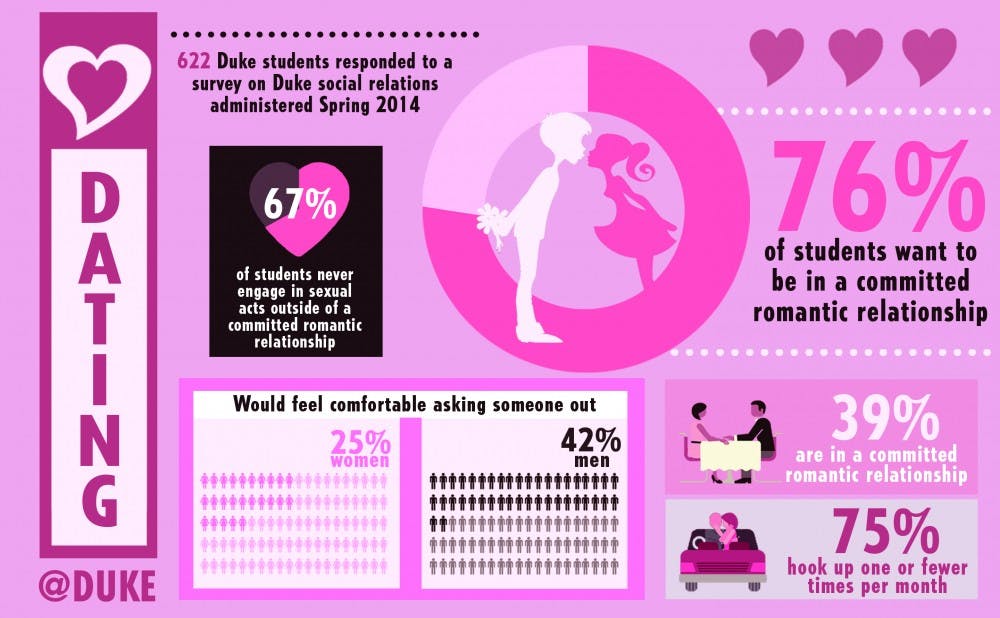“If you’re not dating or in a committed relationship, why not?” Gary Glass asked the crowd of Dating at Duke.
The event—which was sponsored by Counseling and Psychological Services Monday evening—was intended to spark conversation surrounding the prominent student dissatisfaction surrounding the hookup and dating cultures on campus, noted Glass, associate director for outreach and developmental programming at CAPS. Approximately three quarters of the student body wish that they were dating more, according to 2012 study “Duke Social Relationships Project” and a 2014 report from Duke Inquiries in Social Relations.
“[This discussion will] get us curious about what the implications are as we develop as human beings and go on to the next generation,” Glass said.,
It is surprising that Duke has a reputation of being a difficult place to find a relationship since such a significant portion of the student body actively desire romantic relationships, Glass said.

According to the 2014 survey, 67 percent of students never engage in sexual acts outside of a committed relationship—a finding consistent for both men and women. Additionally, 75 percent of respondents reported “hooking up”—defined as consensual kissing and or touching—one or fewer times per month. In total, 76 percent of all students who took the survey reported the desire to be in a committed relationship.
Senior Martina Stojanovska said social media has the potential to severely damage developing relationships. Because the Internet makes information about other people so accessible, people often make premature judgments that keep them from pursing potential relationships.
Glass agreed, highlighting that Duke students have a tendency to predict the course of a relationship before it starts.
“There’s often an assumption that we can assess how things can evolve from that initial ‘Do you want to date?’” he said.
Many people have a mental checklist for the kind of partner they want, Glass said. This checklist consists of personality traits and interests that an individual thinks their romantic partner needs to have. If someone does not fit these characteristics, the individual will often disqualify them as a compatible partner.
“The flaw with the information checklist is that it doesn’t take into account the interaction between you, the other person, who you are becoming and who they are becoming,” Glass said.
Relationships take people through a growing process, he said. Although two people may not seem compatible, the disagreements they encounter will help both of them learn about themselves.
“We usually fall in love with a perfect stranger," Glass said. "[It] is an intuitive process that often contradicts good solid judgment."
Get The Chronicle straight to your inbox
Signup for our weekly newsletter. Cancel at any time.

